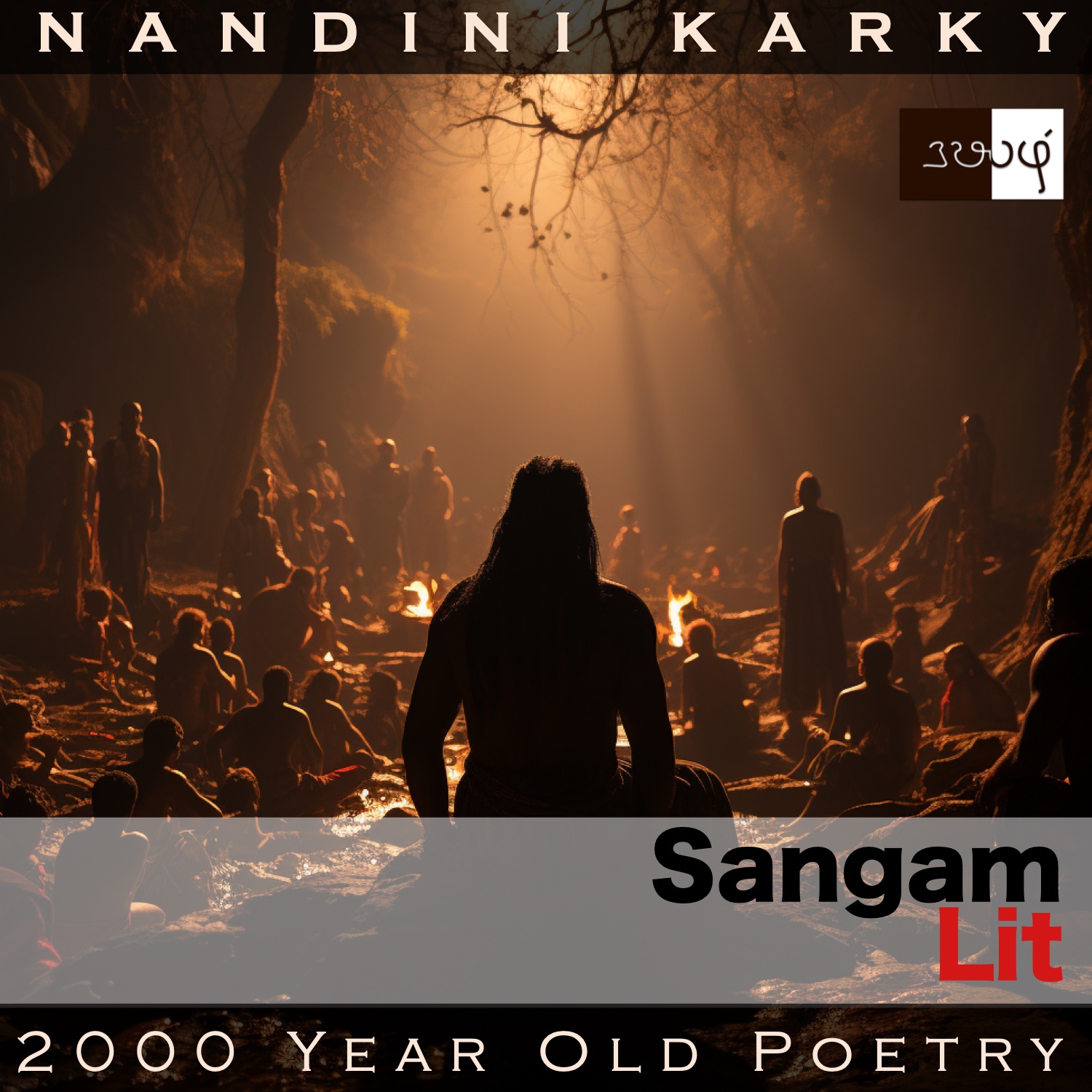Podcast: Play in new window | Download
Subscribe: Apple Podcasts | Spotify | Amazon Music | Android | iHeartRadio | TuneIn | RSS | More
In this episode, we perceive trust in friendship, as depicted in Sangam Literary work, Puranaanooru 215, penned about the poet Pisiraanthaiyaar by the Chozha King Koperunchozhan. Set in the category of ‘Paadaan Thinai’ or ‘Praise’, the verse reveals the deep trust in the heart of this king.

கவைக் கதிர் வரகின் அவைப்புறு வாக்கல்
தாது எரு மறுகின் போதொடு பொதுளிய
வேளை வெண் பூ வெண் தயிர்க் கொளீஇ,
ஆய்மகள் அட்ட அம் புளி மிதவை
அவரை கொய்யுநர் ஆர மாந்தும்
தென்னம் பொருப்பன் நல் நாட்டுள்ளும்
பிசிரோன் என்ப, என் உயிர் ஓம்புநனே;
செல்வக் காலை நிற்பினும்,
அல்லற் காலை நில்லலன்மன்னே.
A tiny verse that contains a mountain-like emotion. We have seen song upon song in which a poet praises a king, and here, the roles are reversed and it’s a king singing the praises of a poet. The Chozha king’s words can be translated as follows:
“On the cooked rice of pounded ‘varagu’ millet, gathered from mature, branching stalks, adding bright ‘velai’ flowers that abound on streets filled with dung dust, and also, white curd, the herder girl serves this delicious sour porridge to those who pluck ‘avarai beans’, who eat it with relish in the fine country of the king, who rules the southern seas. Here, in a town called ‘Pisir’ lives one, who regards my life as his own; When I’m in prosperity, he may abstain, but in such times of adversity, he would never stay away!’
Let’s take a deeper look at these words. The king starts by talking about a meal being prepared. The first ingredient is ‘varagu’ or ‘proso millet’ that has been plucked and pounded and cooked to perfection. Next, a particular flower from the ‘velai’ plant, which is said to grow on roadsides is mentioned. Researching more, found that this ‘velai’ refers to a plant called ‘arrowleaf sida’ and is one used in folk medicine from antiquity. Australian Aborigines, Mexicans and even proponents of Ayurveda are united in using this plant for multiple ailments. Returning, the flower is added to the cooked rice and then white curd is finally mixed. Now, the king reveals who has been doing the cooking and it turns out to be a herder girl, who is serving this food to the labourers out plucking the bean crop. This detailed description has been rendered to give a clear picture of the domain of a Pandya king, described as the king of the southern seas.
Why is this Chozha king taking so much effort to describe the land of his traditional enemy? Only to say that in one town called ‘Pisir’ in that Pandya kingdom, lived a person who was the guardian of this king’s life. Saying that, the king concludes with the words that while it’s possible that this person from Pisir may not visit when all was well, he would never stay away in a time like that, filled with suffering. And now, we come to the question of why it was a time of suffering for this Chozha king. To understand, we need to know that this is happening at a time when the king is heartbroken by his sons, who wanted to wage war on him. So, he decides to give up his life, by sitting facing the north – a custom among Sangam kings to attain an honourable death by fasting. When news of this spreads, poets and well-wishers come to visit the king as he takes upon his fast unto death. Since the poet Pisiraanthaiyaar had not turned up there, other poets raise doubts about whether he would come at all. It’s then this king declares without a shred of doubt in his mind that his friend indeed will come to his side, once the news reaches him in the southern country of the Pandyas. It’s interesting how when describing the Pandya king, this Chozha king does not talk about riches or valour like poets usually do, but instead describes a simple meal at a humble home, thereby upholding the integrity that this is not praise about a king but about a poet who lived in that land. Beyond these subtleties, what shines on timelessly are those words echoing aloud the unshakeable trust in a true friend!




Share your thoughts...